Kitchens To Kindergartens
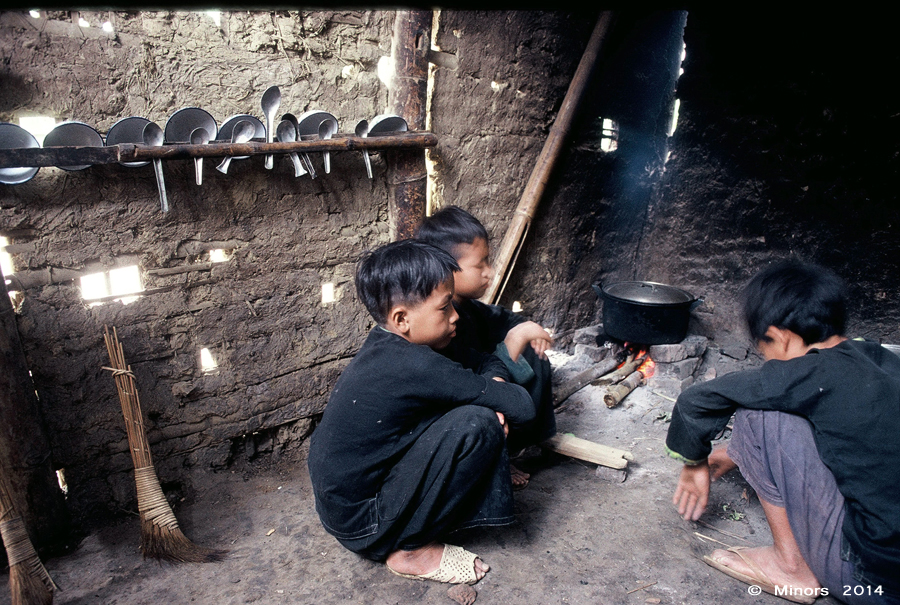
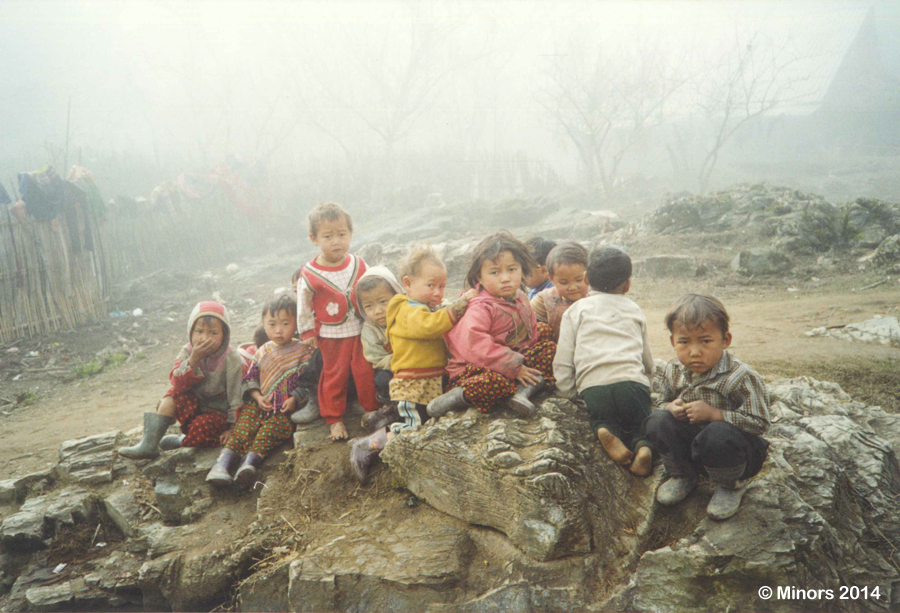
When it was mandated that all communes establish kindergartens a few years ago, many remote and impoverished mountain communes in Viet Nam were unable to afford ideal structures, so our emphasis on infrastructure improvement shifted from construction of dormitoires and kitchens to replace very rough structures,(above,left) at middle and high schools, to improving conditions for kindergarteners, such as these little ones trying to get warmth from rocks outside their classroom. See Cold Kinder
Lodging


The first dormitories we came across two decades ago, built by these Hmong students; the older boys slept on top of the younger boys to keep them warm on freezing nights. From this point on we focused on implementing dormitory construction at highland commune elementary, middle, and high schools with boarding students from the most remote villages in dozens of districts across several northern provinces of Laos and Viet Nam. See Constuction
Machine


A nurse at a rural health station apologizes for having no medicine in her station, which is also her home. This was some years ago; things are improving, but health care costs are still far beyond the reach of most families in these mountain villages. This situation led us to include medical kits, medicine and other basic supplies, as well as health clinic construction in rural areas in central and southern Viet Nam.
Nets



In the Mekong Delta and the Central Highlands in the early 1990s villagers living under the most severe poverty often had no experience using mosquito nets, so part of distribution involved classes set up by our local partners in the use and care of the nets; many of the recipients were unable to read or write, and signed for their nets with their fingerprints.
Orphans' Cow Bank
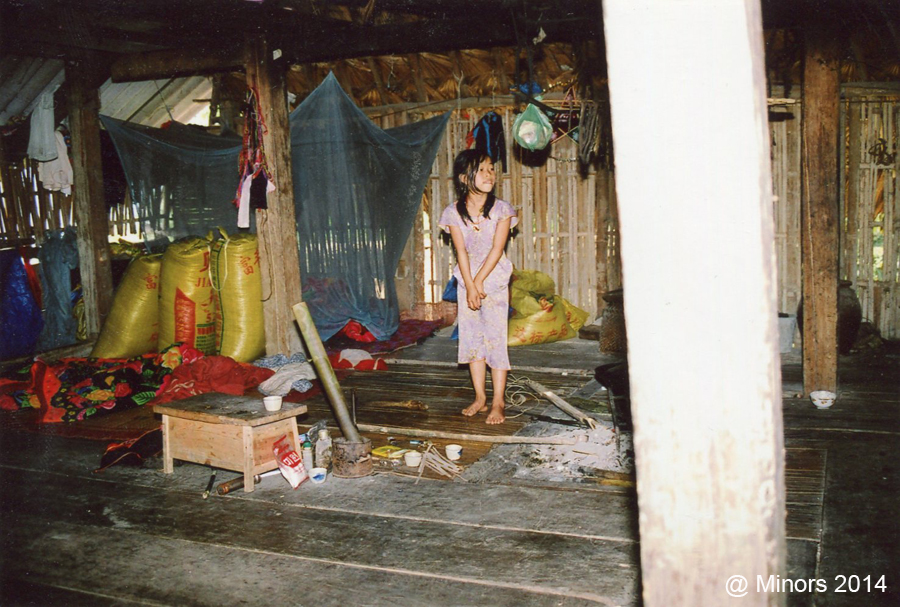
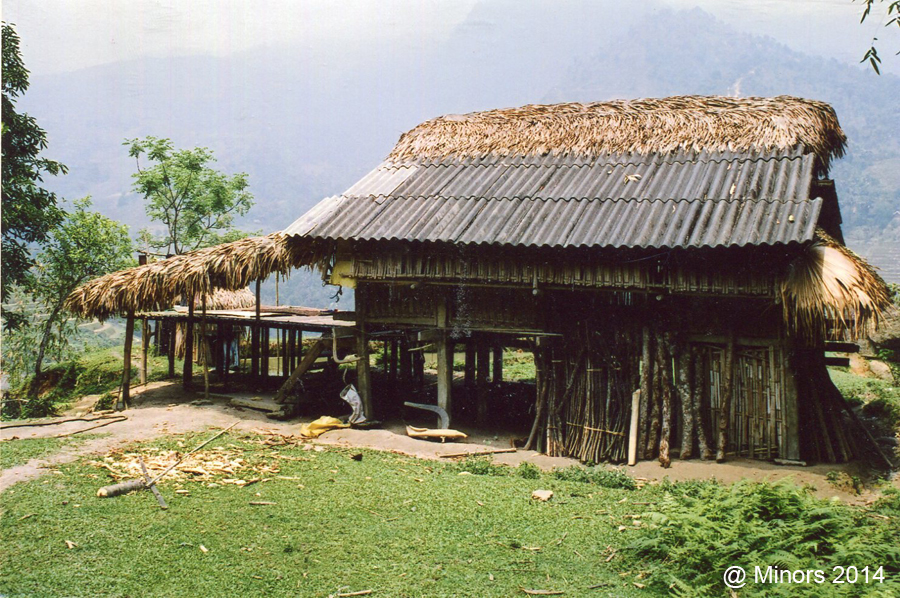
Orphaned students, living with relatives, are frequently at risk of having to drop from school to help earn their keep, as it is beyond the means of many rural families to support even their own children's education, let alone additional family members. Food, books, uniforms and other costs are simply too much for parents who are farmers or those trying to live off the land or forests, or for daily laborers. Photo above, an early recipient of this kind of support at her home.
We started scholarships and cow loans for such students in Viet Nam in the southern delta provinces of Tra Vinh and Long An in the mid 1990s and later implemented this program in Thua Thien Hue, before bringing this kind of support to Laos and northern Viet Nam. In northern Viet Nam we also have included children who are not orphaned, but whose families were in exceptionally difficult circumstances, and who are therefore at risk of dropping from school as well. More details of our current program are at Bees and Buffaloes
Over the years Minors has also provided support for food raising and water projects at Government Centers for Social Security, where destitute elderly, orphans and abandoned children as well as handicapped children who need assistance are residents, in the provinces of Tra Vinh, Gia Lai, Thanh Hoa, Son La, Lai Chau, Dien Bien, Lao Cai and Ha Giang, in Viet Nam, and prior to that in Laos and Cambodia. For more on these projects in their current form, please see Biogas
Pupils' Prerequisites


A nurse at a rural health station apologizes for having no medicine in her station, which is also her home. This was some years ago; things are improving, but health care costs are still far beyond the reach of most families in these mountain villages. This situation led us to include medical kits, medicine and other basic supplies, as well as health clinic construction in rural areas in central and southern Viet Nam.
Quilted Blankets


Warm blankets and warm clothing are the two items that more than any other type of support directly contribute to the increase in the number of days per year that children, particularly girls, from the most geographically isolated and distant mountain villages remain in school. It is simply too cold in the mountain winters to stay on at a boarding school, for younger children, as that is the only option since they have no schools in their home villages. In Laos and northern Viet Nam Minors has distributed over 100,000 such cold weather items at hundreds of remote schools and kindergartens and centers for orphans and elderly over the past two decades.
Originally we distributed the blankets shown in the photo above right, but soon found they were insufficient, and switched to the filled or quilted type blankets some years ago. No one lap top-per child programs here, we are aiming at two or three students per blanket, which adds even more warmth from student body heat.
For more photos and details about specific items please see What We Do, Clothing
Rice Scholars


Rice Scholarships were first awarded at these two schools in the early 1990's, and both schools increased dramatically the number of girls from the most distant villages who came to board at both primary, middle schools. These food supplements, rice or corn, were provided to students from families at or below subsistence level, and are only able to forage in the late winter months. These scholarships allow these children to finish out the school year.
Minors also implemented our first dormitory construction projects at these two primary, middle schools, in the provinces of Dien Bien, at that time Lai Chau (boarding students eating lunch in front of their new dorm) and Hoa Binh (boarders cooking). More details about our Rice Scholarship program and a look at the tough and risky alternatives for those students who are without food, at What We Do / Rice Scholarships
Sustainable Support


Orphans heating water for cooking with a fire fed by sticks and branches gathered from a long hike away. At this Center in Ha Giang and another in Lai Chau province, as well as several remote commune boarding schools, Minors has now implemented biogas projects to save wood by recycling waste, both from animals and orphans. The holding tank and tube carrying the methane gas are seen at rear of pen. More details and a look at the step by step process at What We Do/Food/ Biogas
Teacher Support


Teachers posted at remote mountain schools often face not only inadequately equipped classrooms and a chronic shortage of teaching and student supplies, but harsh living conditions themselves. Strong bonds develop between teachers and their students when resources, like water and cooking fuel are scarce, not only teaching materials. More about teachers' challenges, and photos of their daily life are at About Minors / Minors' Team and Fellow Travelers / Teachers
Utensils


A nurse at a rural health station apologizes for having no medicine in her station, which is also her home. This was some years ago; things are improving, but health care costs are still far beyond the reach of most families in these mountain villages. This situation led us to include medical kits, medicine and other basic supplies, as well as health clinic construction in rural areas in central and southern Viet Nam.
Vegetables


These boarding students in their dorm, greens foraged for lunch waiting on the wall, had only what they could find in surrounding countryside to garnish their rice or corn, brought from home on weekly visits. The new shirts were provided by the government shortly before our arrival.
This was one of the first commune boarding schools in Lai Chau province to receive assistance from Minors, in 1993, where we built a dormitory to replace this one, with help of our local partners. At this time we began implementing food raising projects for boarding students to supplement their ultra light diet, as above, right. In the mountains garden space is scarce, here right up to the classroom, taking the place of a playground, as it were. More current food raising projects at boarding schools are found at What We Do, Food
Water
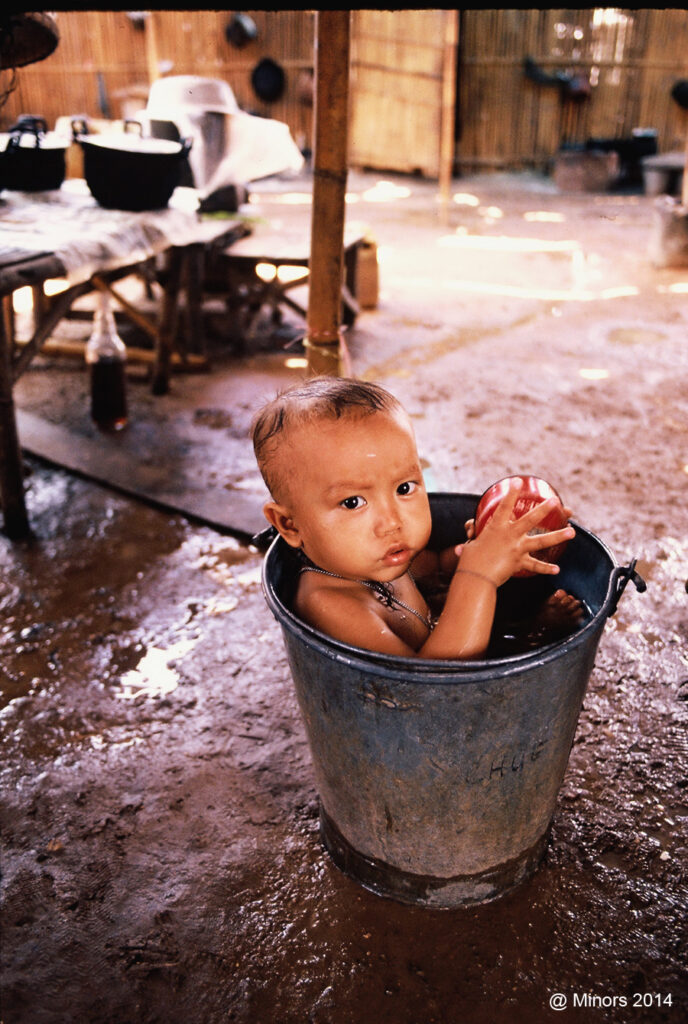
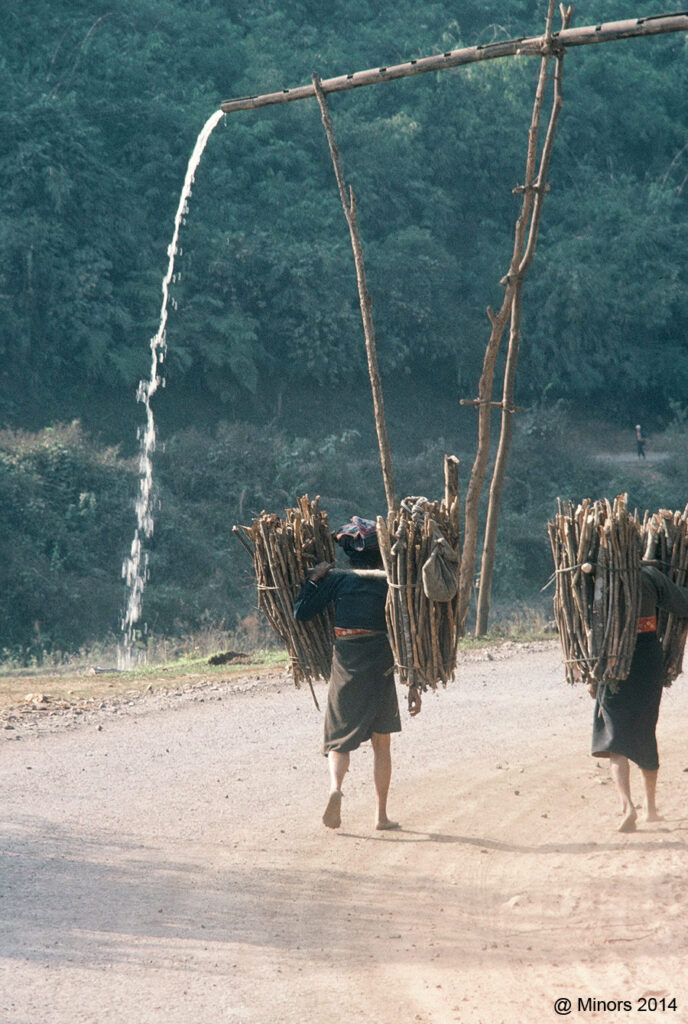
From the early 1980s in the refugee camps of northeastern Thailand, until now, more than thirty years later in mountains of northwestern Viet Nam, we find the great need is still water; it is everything, no more so than at the schools where we provide basic, very basic support. For details about the current water situation at many of these schools, and some solutions, please see What We Do/ Water
XO

